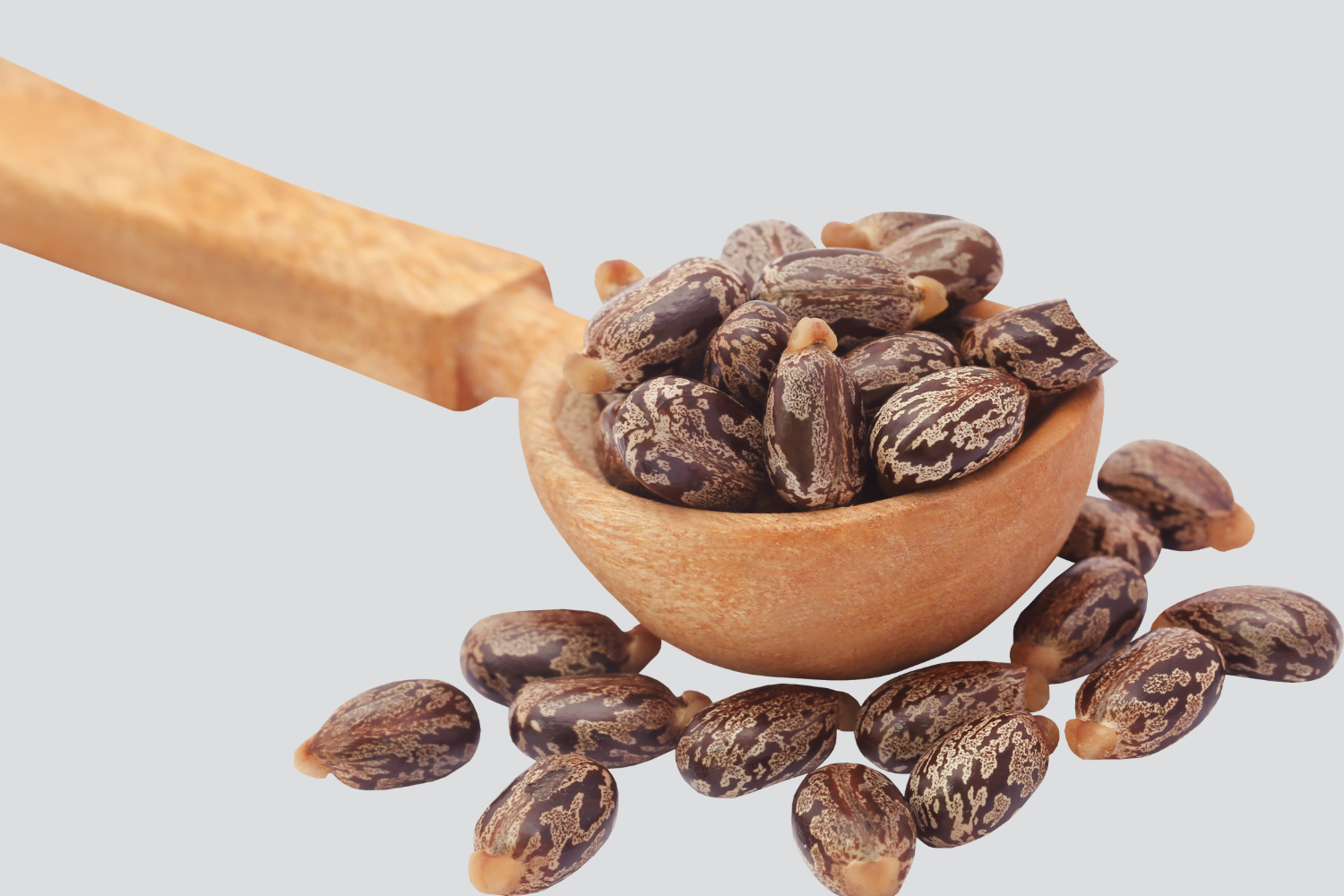Castor Oil in Cosmetics?

Castor oil, derived from the seeds of the castor plant (Ricinus communis), has been revered for centuries for its diverse healing properties, particularly for the skin. This thick, viscous oil is rich in ricinoleic acid, a unique fatty acid that is believed to be the source of its therapeutic benefits. The beauty and skincare realms have embraced castor oil for its ability to moisturize, soothe, and enhance the skin's overall health.
One of the most celebrated benefits of castor oil is its moisturizing capability. Its dense consistency allows it to penetrate deeply into the skin, providing hydration and helping to maintain moisture by preventing water loss through the outer layer of the skin. This makes it an excellent natural remedy for dry, flaky, or irritated skin, leaving it feeling soft and supple. Additionally, castor oil has been used to promote wound healing, thanks to its anti-inflammatory properties, which help to reduce swelling and redness, and its ability to stimulate tissue growth, thereby creating a barrier between the wound and the environment.
Moreover, castor oil has found its place in the treatment of acne and other skin conditions. The antimicrobial properties of ricinoleic acid can help to combat bacterial overgrowth on the skin, a common culprit behind acne breakouts. Furthermore, castor oil is often used in oil cleansing methods, where its purifying properties help to remove impurities and cleanse the pores without stripping the skin of its natural oils. Whether used as a moisturizer, treatment for skin conditions, or a gentle cleanser, castor oil is a versatile addition to any skincare routine, offering a natural, effective solution to achieving a healthier, more radiant complexion.
Why Castor Oil Should Be Hexane Free?
Choosing hexane-free castor oil is a decision that aligns with both health-conscious living and environmental sustainability. Hexane is a chemical solvent used in the extraction process of oils, including castor oil. Its use can speed up the extraction process and increase oil yield, but it also raises concerns about trace residues in the final product and its impact on the environment.
Firstly, from a health perspective, opting for hexane-free castor oil ensures that you're using a product that is as pure and natural as possible. Although the levels of hexane residue in oils are regulated and kept to a minimum, many individuals prefer to avoid synthetic chemicals entirely, particularly in products used for personal care or medicinal purposes. Hexane-free castor oil is often extracted using mechanical methods or other chemical-free techniques, which can minimize the risk of contamination with residues that might have adverse health effects over time.
Environmentally, the production of hexane-free castor oil is more sustainable and less harmful. Hexane extraction, while efficient, can contribute to air pollution and environmental degradation. The chemical is classified as a volatile organic compound (VOC), which can contribute to the formation of ground-level ozone, a key component of smog. By choosing hexane-free products, consumers support practices that are less reliant on chemical solvents and, therefore, more in harmony with ecological balance.
In conclusion, selecting hexane-free castor oil is a choice that benefits not only personal health by reducing potential exposure to chemical residues but also supports environmentally friendly manufacturing processes. As consumers become more aware of the implications of their choices, the demand for clean, responsibly produced goods increases, encouraging industries to adopt practices that safeguard health and the environment.
Why Castor Oil Should Be Heavy Metal Free?
Castor oil, a vegetable oil pressed from castor beans, has long been lauded for its diverse health and beauty benefits. From moisturizing skin and hair to supporting wound healing, its uses are varied. However, the purity of castor oil is paramount, especially in terms of being free from heavy metals, to ensure its safety and efficacy.
Heavy metals such as lead, mercury, arsenic, and cadmium can be harmful to human health, even in trace amounts. Their presence in any product intended for medical or cosmetic use poses significant risks. For instance, heavy metals can accumulate in the body over time, leading to toxicity that affects the nervous system, kidneys, and other vital organs. Moreover, some heavy metals are known carcinogens, increasing the risk of cancer with prolonged exposure. This is why ensuring castor oil is free from these contaminants is crucial, particularly when used for personal care or medicinal purposes.
In the production of castor oil, the risk of contamination with heavy metals can occur through polluted soil, water, or processing methods. As such, manufacturers must adhere to stringent testing and purification processes to eliminate these dangers. Consumers should look for castor oil products that are certified to be heavy metal free. This certification is not only a testament to the product's purity but also an assurance of its safety for regular use. By choosing heavy metal-free castor oil, individuals can enjoy its myriad benefits without the fear of adverse health effects associated with heavy metal exposure.
References
- Posted in Animal Welfare in Organic Farming, bovine, certified heavy metal free, certified hexane free, certified organic suet, certified organic tallow, certified tallow skincare, concious consumer choices, Eco-friendly, Environmental Sustainability, Fat Rendering, heavy metal free, hexane free castor oil, holistic health, Non-GMO Tallow, noutrient rich beef ta






